-
The United Nations Millennium Declaration and Millennium Development Goals agreed in 2000 guide our action:
“...certain fundamental values [are] essential to international relations in the 21st Century: Freedom ... Equality ... Solidarity ... Tolerance ... Respect for nature ... Shared responsibility...”

-
The UN-EU partnership is founded upon the UN Charter of 1945
“We the peoples of the United Nations determined to save succeeding generations from the scourge of war .... To reaffirm faith in fundamental human rights .... To establish conditions upon which justice and respect...for international law can be maintained ... To promote social progress and better standards of life in larger freedom.”
-
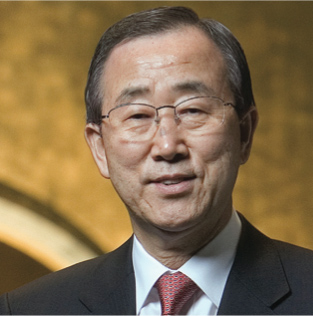
United Nations Secretary-General
This eighth annual report on the partnership between the United Nations and the European Union focuses on the critical field of food and nutrition security. It reflects how the United Nations and the European Union closely collaborated to abate the harmful effects of the global food crisis of 2007-2008 by strengthening the resilience of affected communities and improving their food security. By joining forces, we were able to maximise our respective strengths and work with partner countries and communities to benefit millions of people.
During the five-year period covered by the report, the United Nations and the European Union delivered food assistance in crisis situations and enhanced the food security and nutritional status of vulnerable people across the world. With assistance from the European Union Food Facility, we also enabled small landholders to increase agricultural production and minimise the impact of rising food prices.
Addressing hunger and achieving food security are central to meeting the Millennium Development Goals (MDGs). As we approach the 2015 deadline, we are also shaping a universal development agenda for the following decades to eliminate extreme poverty and hunger and promote sustainable development. At this critical time, I commend this report to all those interested in strengthening global efforts towards these ends.
BAN Ki-moon
-
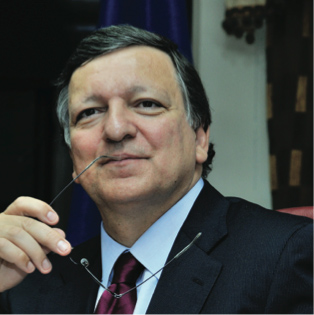
President of the European Commission
The European Union and the United Nations form a natural team in promoting development, human rights and peace. We share the same objectives, as set out in the UN Charter.
Within the framework of our cooperation, it gives me great pleasure to present this eighth report on the results of the UN-EU partnership, which focuses this time on food and nutrition security from 2008 to 2012. These results have been achieved through the joint efforts of the EU and the UN in a relationship that combines policy vision and programmatic collaboration.
Since 2008, the EU, the UN and the international community have demonstrated their ability to collectively respond to food crises – indeed, the UN has recognised our contribution by awarding the EU the Diouf prize for our work on the Food Facility.
Implementation of the EU Food Facility € 1 billion programme could not have happened without the UN. Our response has progressed: what at first appeared to be a reaction to a crisis has now become a more strategic and long-term approach. This is the approach the EU has adopted in its policy framework ‘An Agenda for Change’.
Through policy initiatives promoting resilience at the level of countries, communities and individuals, and through the incorporation of nutrition across sectors, the EU is promoting sustainable agriculture and addressing food security in a coherent way.
We are determined to continue working together in close collaboration with developing countries. It is crucial that the poorest economies are not left behind. Our UN-EU partnership is an essential component in our efforts to work towards a post-2015 agenda which ensures a better world for all.
I would like to express our sincere appreciation to the United Nations for this report which provides a remarkable overview of our cooperation in the field of food and nutrition security.
José Manuel Durão Barroso
-
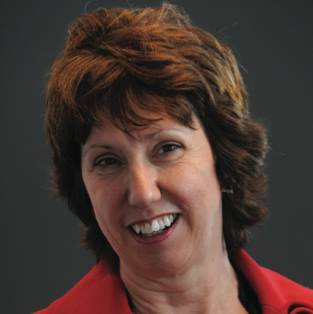
High Representative for Foreign Affairs and Security Policy
It is a pleasure for me to introduce this report on the UN-EU Partnership in 2012. This year, the report focuses on “Food and Nutrition security 2008-2012”.
The European Union and the United Nations have a long-standing and unique cooperation that has been further strengthened by the creation of the European External Action Service.
UN-EU cooperation encompasses the whole range of UN activities: Peace and Security, Sustainable Development and Human Rights, the three interconnected pillars of the UN.
This year’s report illustrates one crucial aspect of the EU’s comprehensive approach: the way in which we provide concrete help to improve food security. Simultaneously, on the diplomatic level and through our crisis management missions and our support to UN peacekeeping, we help to bring peace to countries haunted by war and violent conflict. Our support to human rights is a precondition for ensuring lasting peace.
Working at the UN, we must ensure that the issues of hunger and food and nutrition security are well reflected in the post- 2015 framework for poverty reduction and sustainable development. The EU is proud to be in the forefront of this effort.
Catherine Ashton
-
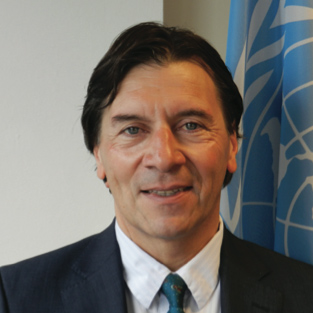
United Nations Director in Brussels
Food security and adequate nutrition have been a major preoccupation of the international community in the past decades, but have become an even greater challenge in the last years, as a consequence of the extraordinary food price rise of 2008. The right to food, recognised in the Universal Declaration of Human Rights, is still far from being realised for every human being. Significant progress has been achieved, however population growth, the situations of conflict and fragility, and the effects of climate change, are some of the factors which aggravate food insecurity especially in developing countries. Therefore, protracted and intensive efforts will be required for many years to come by local communities, national governments and the international cooperation to reach zero hunger and adequate nutrition for all. This is and must be a feasible objective in the framework of the post-2015 development agenda.
The UN High-Level Task Force (HLTF) on the Global Food Security Crisis has called for resolute commitment to halt food insecurity through a “Comprehensive Framework for Action”. The EU also responded to the global food crisis of 2008, that posed a major threat to the world’s most vulnerable populations, through a newly established Food Facility. The European Union and the United Nations have worked together to boost national efforts to implement the HLTF action plan.
In this eighth annual report, the UN Team in Brussels shows through the concrete results realised and a collection of emblematic human stories what has been achieved and the difference that the UN-EU collaboration has made in the lives of millions of people.
Antonio Vigilante
-
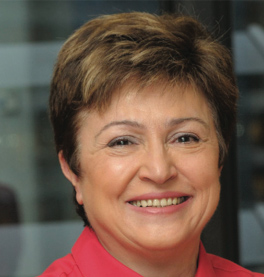
EU Commissioner for International Cooperation, Humanitarian Aid and Crisis Response
Food and nutrition security is a priority for the EU and it is a very clear personal priority for me: As Commissioner for International Cooperation, Humanitarian Aid and Crisis Response, I am confronted on a daily basis with the dramatic effects created by food and nutrition insecurity, especially on young children. We cannot accept that this silent killer takes the lives of the poorest or steals the future away from children.
So we are working together with our partners to meet the acute food and nutrition needs of the most vulnerable and at the same time to help build a resilient future for them. The UN family is a crucial partner for us in this endeavour. Every year we save millions of people from under-nutrition and hunger thanks to this cooperation. We make sure that we do so in the most efficient and effective way possible, applying innovative tools such as cash and vouchers, which bring more value for money and allow us to help a larger number of vulnerable people with the funds that are available.
Kristalina Georgieva
-
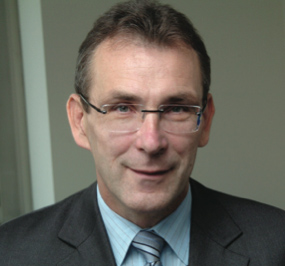
EU Commissioner for Development Cooperation
The European Union is the main donor in food security, committing more than € 1 billion per year and it intends to remain deeply involved in the sector over the next 10 years. The EU intends to support some 50 countries, including 40 in Africa, in establishing food security and reducing stunting. The EU Communication ‘Enhancing maternal and child nutrition in external assistance: an EU policy framework’ underscores the commitment of the EU to support partner countries in their efforts to reduce stunting in children under five by at least 10% of the World Health Assembly 2 goal by 2025.
This has been complemented by the announcement, in June of this year, that the EU will spend € 3.5 billion on nutrition related activities between now and 2020. The EU will also work with other donors, partner countries and scientific institutions in enhancing accountability, both through tracking investments in nutrition and in measuring the impact of those investments.
Andris Piebalgs
-
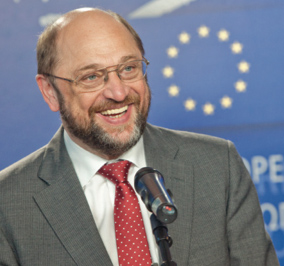
President of the European Parliament
The European Parliament is an increasingly pro-active player on the international scene and takes a share of the Union’s global responsibility. It makes sound recommendations for global policy actions, enters into regular dialogue with state and non-state actors, co-decides on Union legislation with global impact and adopts, together with the Council, the EU budget including large financial contributions to the UN system. It remains entirely committed to global interaction and therefore promotes ever closer cooperation between the EU and the UN in order for them to live up to their responsibilities as decisive multilateral actors in the fields ranging inter alia from development policy, human rights and climate change over peace-building, humanitarian assistance, the rule of law, election observation to global health concerns, labour issues and culture. While significant progress could be made in many of those fields, we continue also to witness rising inequalities between and within countries, and intensifying global challenges.
I strongly welcome that one of the main global concerns of our times, food and nutrition security, has been selected as the main theme of the 2013 UN-EU Partnership Report. The European Parliament fully shares the concern that fighting hunger and reducing under-nutrition are crucial to global development and therefore should be a vital action of our successful cooperation framework.
I look forward to a continuous and fruitful engagement in protecting lives, safeguarding human rights and advancing development. The present publication, already the eighth report, is a further demonstration of close EU-UN collaboration the world is expecting us to pursue for the common good of all citizens.
Martin Schulz
-
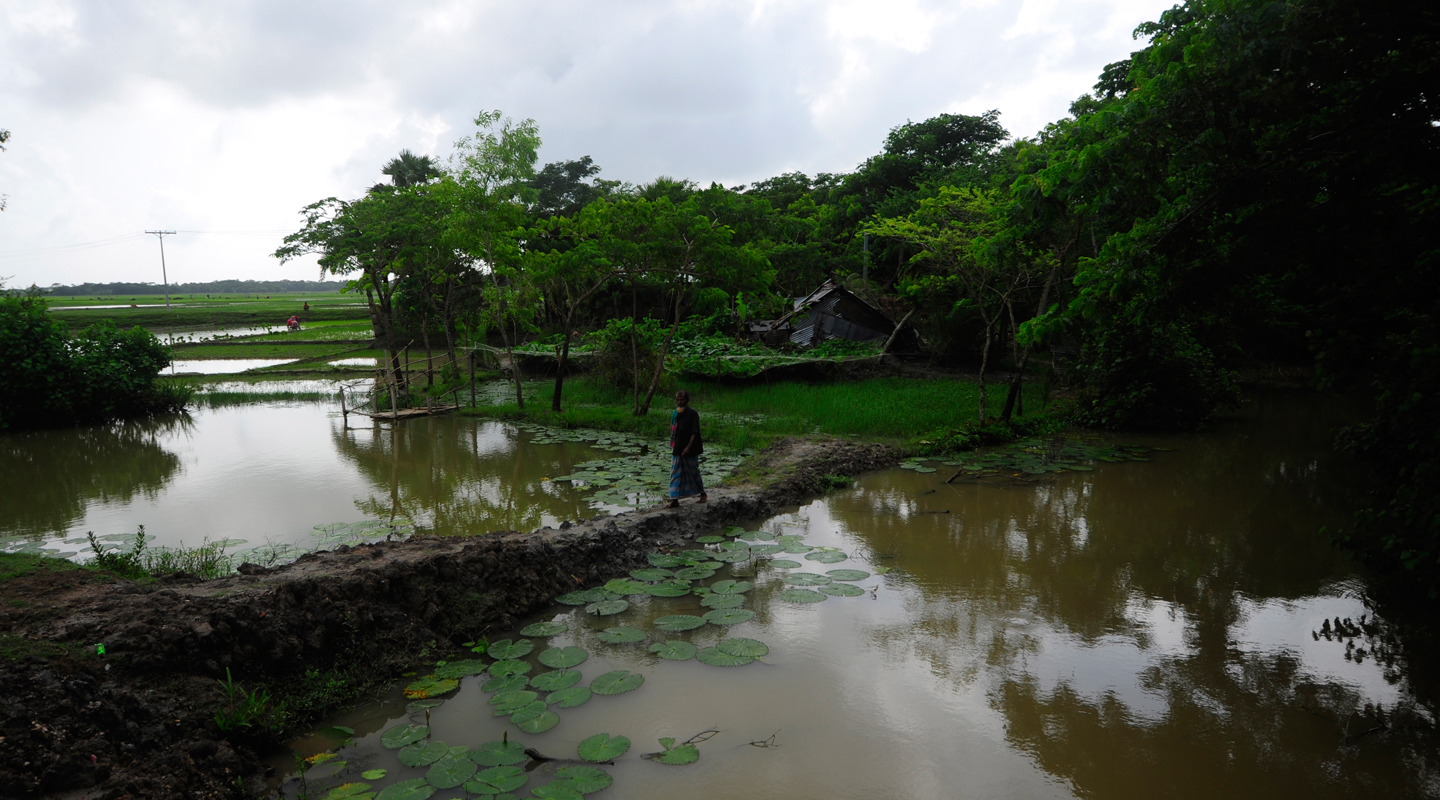
Introduction
World food prices rose sharply in 2008. There was a dramatic increase in the numbers of people who are poor, experiencing chronic hunger and at risk of malnutrition. The UN High-Level Task Force on Global Food Security developed a Comprehensive Framework for Action to meet the immediate needs of vulnerable populations and contribute to longer-term resilience of food security.Bangladesh. A beneficiary of a UN fisheries project, standing near his home.
© FAO, 2010, Munir Uz Zaman. -
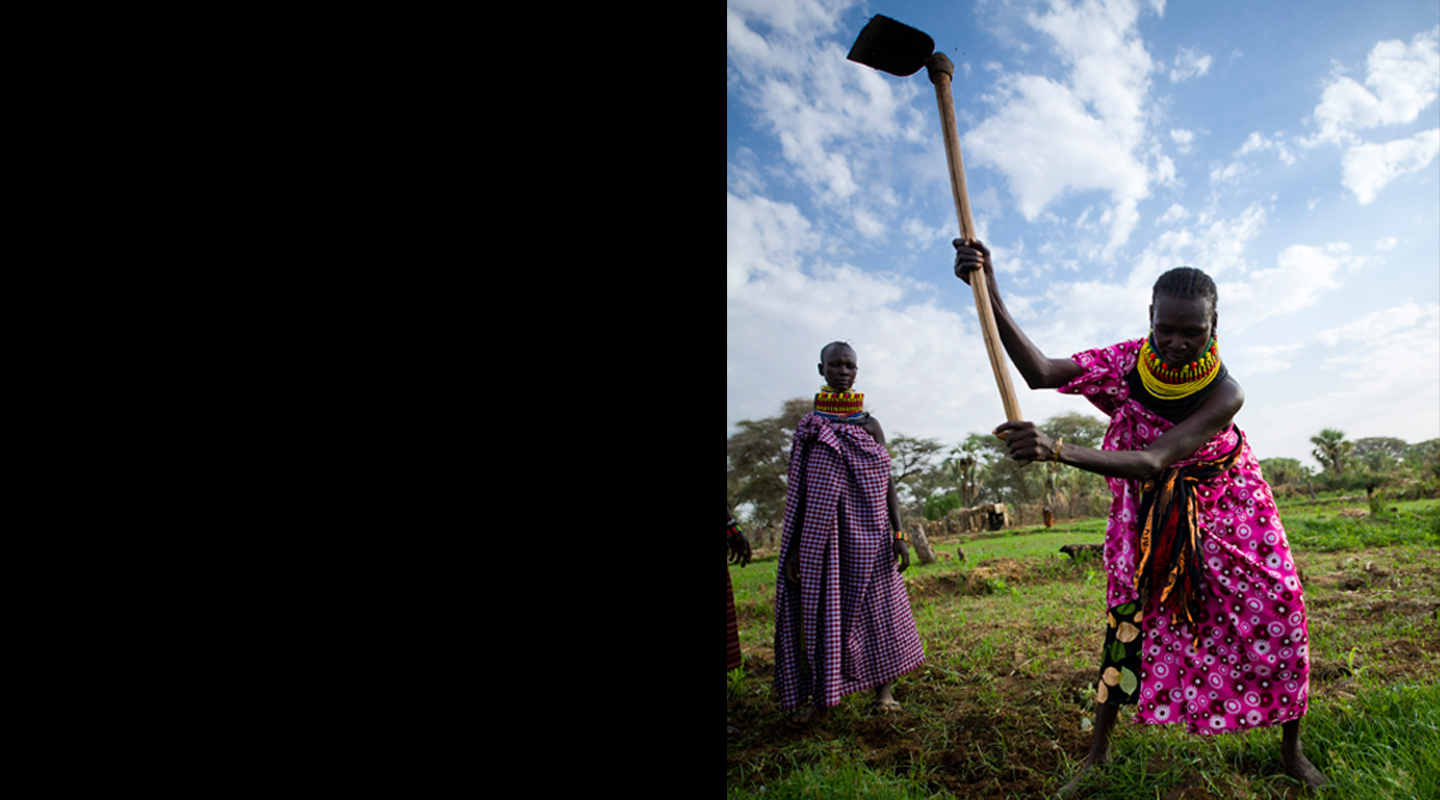
This report highlights examples of what the EU and the UN delivered together over a five year period to improve food and nutrition security
Following the food price hike in 2008, the international community has increased its investment in food and nutrition security. In December 2008, the EU established a 1 billion Food Facility instrument in response to the effects of the food crisis. Recently, it launched two additional initiatives in the Horn of Africa and the Sahel.
The UN has been a long-standing partner in this endeavour. From 2008 to 2012, the EU channelled over € 2.63 billion through the UN for food and nutrition security, including € 480 million from the EU Food Facility. Most funding was devoted to emergency food assistance (over € 1.2 billion), agriculture (over € 1 billion), and nutrition (€ 245 million).
Kenya. Hellen Atiir and her family were once nomads. Due to frequent droughts, lack of pasture, and insecurity, they decided to settle into a sedentary lifestyle and began rain-fed farming. Families in the Turkana region have been supported to participate in a minor irrigation scheme that has greatly increased their drought resilience.
© WFP, 2012, Rein Skullerud. -
Mediterranean
SeaNorth
Atlantic
OceanClick the legends to see the countries and areas in which the UN and EU worked together in the field of food and nutrition security in 2008-2012. Mouse over or click on a country to see more information about it.

Loading ...

